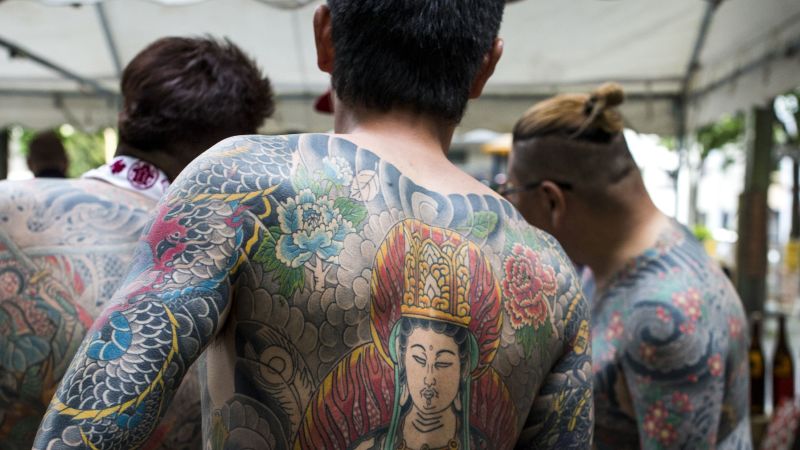
Japan’s biggest Yakuza crime group pledges to end decade-long gang war
Japan’s largest yakuza crime syndicate has pledged to end its longstanding war with a rival faction and refrain from causing “trouble,” authorities said, as the mafia-like groups contend with falling membership and increased police crackdowns.
The Yamaguchi-gumi, one of the world’s largest and wealthiest crime gangs, has been embroiled in a bloody feud with splinter groups since 2015, when more than a dozen factions broke away to form the Kobe Yamaguchi-gumi.
Since then, intensifying violence between the two warring crime organizations has seen rival gangsters gunned down or stabbed in dozens of incidents, according to police.
The armed conflict, often erupting on public streets in cities across central and western Japan, has put pressure on authorities to toughen restrictions on the gangs.
“Yakuza” is a blanket term for Japan’s organized crime groups, which sit in a gray area in the country. Though they are not outlawed, the groups are regulated and monitored by authorities.
In 2020, police formally designated the Yamaguchi-gumi and its splinter group as gangs at war – giving officers the ability to increase surveillance, restrict their activities, including prohibiting the use of their offices and ability to raise funds.
“Their conflicts have become serious and unpredictable,” the National Police Agency said in 2021. In the past five years, police have also put several other gangs under close surveillance.
It is unclear whether the rival splinter group, Kobe Yamaguchi-gumi, has responded to the ceasefire pledge. Police said they would be “closely monitoring the movements of both groups” as the declaration to end the turf war may be one-sided.
Membership to yakuza groups across Japan has been in decline over recent decades. In 2024, the number of members of organized crime syndicates stood at 18,800, hitting a record low and falling below 20,000 for the first time, according to police data.
Those official figures show the number of active members of the Yamaguchi-gumi gang have almost halved since 2014 – falling from 6,000 then to just 3,300 at the end of last year. The Kobe Yamaguchi-gumi had around 120 members last year.
As yakuza membership falls, however, Japanese authorities are contending with a new criminal phenomenon: the “tokuryu.”
These anonymous gangs are not affiliated with a yakuza family, operating individually or in ad hoc groups. About 10,000 members of tokuryu gangs were investigated last year, with police linking them to violent robberies in Tokyo, and fraud schemes involving romance scams and investments on social media.
